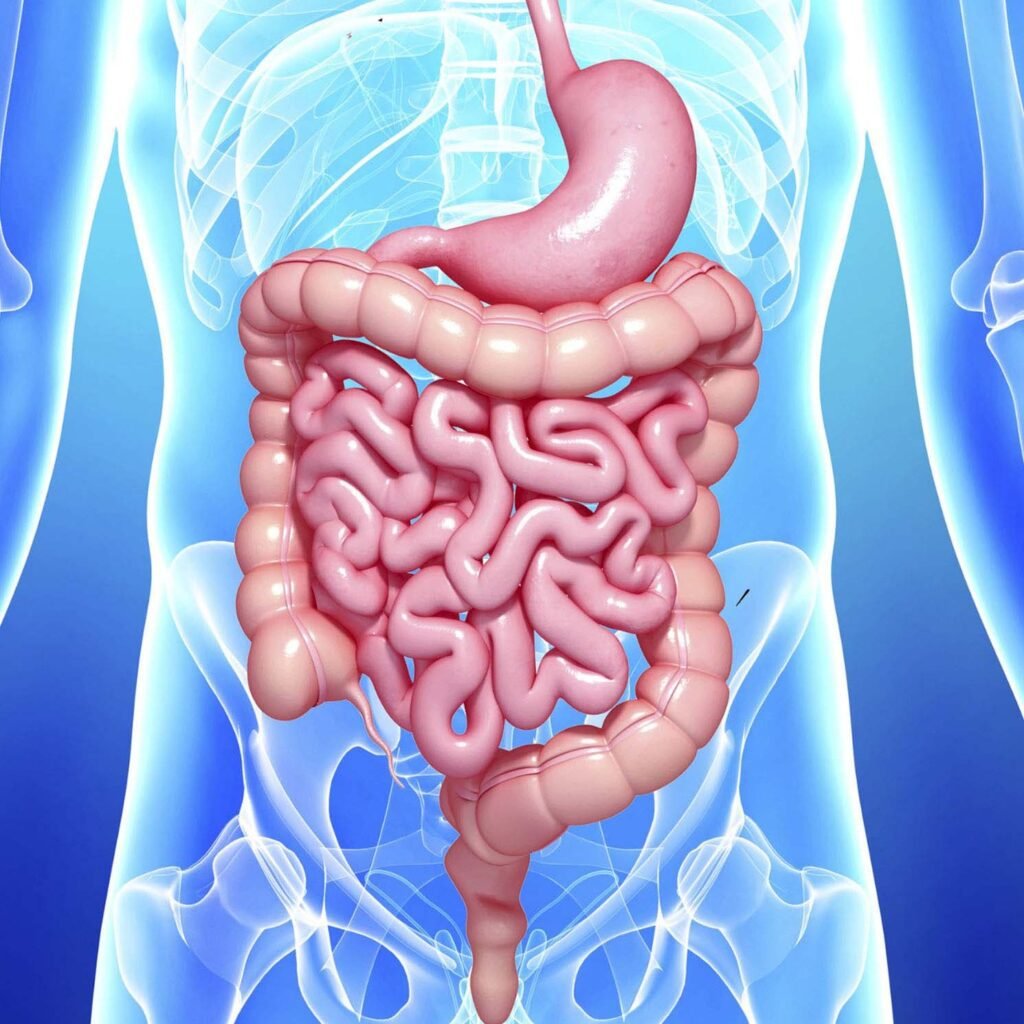Digestive Disorders

Digestive Disorders
Digestive disorders refer to a range of conditions that affect the gastrointestinal (GI) tract, which includes the esophagus, stomach, intestines, liver, pancreas, and gallbladder. These disorders can cause symptoms like abdominal pain, bloating, diarrhea, constipation, heartburn, and nausea. Here’s a breakdown of some common digestive disorders:
- Gastroesophageal Reflux Disease (GERD)
- Description: A chronic condition where stomach acid flows back into the esophagus, causing irritation.
- Symptoms: Heartburn, regurgitation, chest pain, and difficulty swallowing.
- Management: Lifestyle changes (e.g., avoiding certain foods, eating smaller meals), medications (antacids, proton pump inhibitors), and in severe cases, surgery.
- Irritable Bowel Syndrome (IBS)
- Description: A functional disorder of the large intestine, leading to chronic abdominal pain and altered bowel habits.
- Symptoms: Diarrhea, constipation, bloating, gas, and cramping.
- Management: Diet changes (low FODMAP diet), stress management, fiber supplements, and medications (laxatives, antispasmodics).
- Inflammatory Bowel Disease (IBD)
- Description: A group of disorders, primarily Crohn’s disease and ulcerative colitis, that cause chronic inflammation of the GI tract.
- Symptoms: Severe diarrhea, weight loss, abdominal pain, fatigue, and sometimes bloody stools.
- Management: Anti-inflammatory drugs, immune system suppressors, biologics, and surgery in severe cases.
- Celiac Disease
- Description: An autoimmune disorder where the ingestion of gluten leads to damage in the small intestine.
- Symptoms: Diarrhea, weight loss, fatigue, anemia, and bloating.
- Management: A strict gluten-free diet.
- Peptic Ulcer Disease (PUD)
- Description: Open sores that develop on the lining of the stomach, small intestine, or esophagus, often due to Helicobacter pylori infection or long-term use of NSAIDs.
- Symptoms: Burning stomach pain, bloating, nausea, and in severe cases, vomiting blood.
- Management: Antibiotics (for H. pylori), proton pump inhibitors, and lifestyle changes.
- Gallstones
- Description: Solid particles that form in the gallbladder, often causing blockages in the bile ducts.
- Symptoms: Severe pain in the upper abdomen, nausea, vomiting, and possibly jaundice.
- Management: Medications to dissolve gallstones, or surgical removal of the gallbladder (cholecystectomy).
- Diverticulitis
- Description: Inflammation or infection of small pouches (diverticula) that can form in the walls of the colon.
- Symptoms: Abdominal pain (usually on the lower left side), fever, and changes in bowel habits.
- Management: Antibiotics, liquid diets, and in severe cases, surgery.
- Liver Disease
- Description: Conditions like cirrhosis, hepatitis, and fatty liver disease that impair liver function.
- Symptoms: Jaundice, fatigue, swelling in the legs, and easy bruising.
- Management: Depends on the cause—lifestyle changes (avoiding alcohol), medications, and possibly liver transplantation.
- Pancreatitis
- Description: Inflammation of the pancreas, which can be acute or chronic, often caused by gallstones or excessive alcohol consumption.
- Symptoms: Severe upper abdominal pain, nausea, vomiting, and fever.
- Management: Fasting to let the pancreas heal, pain management, and treating underlying causes.
- Constipation
- Description: Difficulty in emptying the bowels, often due to hard stools or slow movement of stool through the colon.
- Symptoms: Infrequent bowel movements, straining, and a feeling of incomplete evacuation.
- Management: Increased fiber intake, hydration, exercise, and over-the-counter laxatives.
Diagnosis and Treatment
- Diagnosis: Digestive disorders are diagnosed through a combination of medical history, physical exams, and tests like endoscopy, colonoscopy, imaging, and blood tests.
- Treatment: Management often includes lifestyle changes, medications, and in some cases, surgery.
Understanding the specific type of digestive disorder is crucial for appropriate management and relief of symptoms. If untreated, some of these conditions can lead to complications.